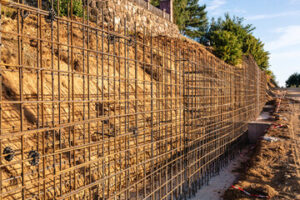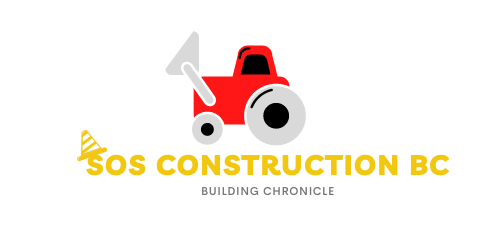Hiring a Retaining Wall Contractor
Retaining walls are masonry structures that hold back soil that would otherwise shift along a slope or incline, washing it down into your yard or driveway and creating a dangerous situation. Hiring Retaining Wall Contractor will ensure your retaining wall is well-built and durable.

A good retaining wall builder should have no problem providing you with references. You should also carefully read any contract that they send over.
When choosing a Retaining Wall Contractor, it is important to choose one with a good reputation. Ask friends and family for referrals and search online to find reputable contractors. It is also important to check for licensing and insurance. A license ensures that the contractor is bonded and insured, while insurance protects you in case of any damages during the project.
A retaining wall is a structure that is built to hold back soil and prevent erosion. It is typically constructed from concrete, stone, brick, or other sturdy materials. Retaining walls can serve a variety of purposes, including preventing landslides, creating level ground for buildings, and enhancing the appearance of a landscape. In addition to their function, retaining walls can add to the value of your home.
Retaining walls can be constructed in a variety of ways, but it is important to hire a professional to ensure that the construction meets building codes and regulations. A professional will have the necessary skills and experience to construct a quality retaining wall that will last for years.
Before hiring a retaining wall contractor, it is important to ask for references and look at previous projects. This will give you a better idea of the contractor’s experience and skill level. In addition, you should ask for quotes from several contractors to compare prices and services.
The most important factor in finding a retaining wall contractor is experience and reputation. A reputable contractor will have a strong track record of successful projects. They will also be able to provide references and testimonials from past clients. Additionally, they will be able to answer any questions you may have about the process.
When selecting a Retaining Wall Contractor, make sure to hire one with a solid industry reputation and references from satisfied customers. You can also ask for a sample of their work and a detailed estimate. This will help you determine whether they are the right fit for your project. A reputable contractor will be willing to work within your budget and time constraints. Additionally, they will be able to advise you on the best type of material for your retaining wall.
Experience
Retaining walls serve a practical purpose in your landscape, helping manage slopes and promote adequate drainage. They can also add aesthetic value to your home. Regardless of the purpose of your wall, however, it’s crucial to make sure that it’s built correctly. A poorly built retaining wall can collapse or erode over time, creating safety hazards for you and your family.
A reputable contractor will know how to properly build your wall and ensure that it’s built using durable materials. They’ll also take into account factors like soil conditions and weather. They’ll also be able to recommend the right material for your project based on your needs and preferences.
You should always ask for referrals from past clients when looking for a retaining wall contractor. This can help you find out about their experience level and the quality of their work. You should also ask if they offer any guarantees for their services. This will give you peace of mind knowing that if the wall doesn’t turn out as expected, you’ll be compensated.
Choosing a local retaining wall contractor is typically the best choice because it’s easier to work with them. Local contractors have connections with local vendors and will be able to get the best materials at a more affordable price. They’ll also be able to work faster and more efficiently than contractors who aren’t familiar with the area.
It’s also important to check the retaining wall contractor’s qualifications and certifications before hiring them. They should have a valid business license and insurance coverage. In addition, they should be a member of a professional association related to construction or landscaping. This will help you ensure that they’re a legitimate contractor and not someone who’s trying to scam you. Also, make sure that the retaining wall contractor provides you with an estimate before starting any work. This will prevent any surprises down the road and ensure that you’re getting the best possible service.
Materials
A retaining wall can protect homes on steep slopes that are prone to land slides. Retaining walls can also be used to add landscape features and gardens to a home or commercial property. They can be built out of brick, stone, concrete and other materials. Regardless of the material, a retaining wall requires skilled installation.
The cost of a retaining wall can vary based on the type of material and design. A masonry wall is typically more expensive than a wood or concrete block wall. It is important to choose a professional who can build your retaining wall at an affordable price. The type of soil the retaining wall is designed to retain can also affect its cost. For example, if the retaining wall is designed to retain soil that has a high water content, it will require a larger foundation and will be more expensive than a wall made of dry earth.
Another factor that can influence the cost of a retaining wall is the type of equipment and tools needed to build it. If you choose to build a retaining wall yourself, be sure to factor in the costs of the tools and equipment you need to rent or buy, as well as the labor.
The most common material for retaining walls is poured concrete. These walls can be left bare or covered with stucco or stone veneer. This is one of the most expensive ways to build a retaining wall, but it can be the longest-lasting. It is often built by a concrete contractor or masonry contractor.
For a more economical option, you may want to consider a precast concrete retaining wall. These modular systems rely on a basic grading of a flat surface to build the wall on and proper backfill. They can be built by excavation contractors, masonry contractors and some landscaping contractors.
A retaining wall is designed to restrain soil or engineering fill at an angle that is steeper than the material’s natural or engineered angle of repose. They must also be able to withstand the horizontal – or lateral – earth pressure that is exerted on them from the surrounding soil.
Insurance
Retaining walls add aesthetic value to residential landscapes, as well as prevent erosion of sloping areas near homes. They can also help stabilize and protect basements and driveways from damage. However, it is important to maintain an open line of communication with your homeowner’s insurance provider when you add a retaining wall to your property. It is also important to notify your insurance company if you notice any damage to your retaining wall, and provide thorough documentation, including photographs and professional evaluations.
Retaining wall property insurance is a complex issue with no one-size-fits-all answer. Homeowner’s insurance typically provides coverage for several types of damages, such as fire, wind, lightning and other sudden events. It also covers other structures on your property, such as detached buildings or garages, up to 10% of the dwelling coverage limit. However, a retaining wall may be excluded from this coverage if it is considered an outdoor structure.
The US is riddled with old and uncared for coal, gold, silver and diamond mines, which are slowly collapsing underneath the soil. These mine shafts and tunnels are causing land shifts and cave-ins that can affect the stability of nearby buildings, including retaining walls. Because of this, homeowners in prone regions should consider adding earthquake insurance to their policy to cover any damage caused by ground and earth movement.
While this type of coverage is not required by state law, it can be a good idea to have it for peace of mind in the event of a natural disaster. This is especially important in coastal states, where the risk of a mudflow or earthquake is higher. Similarly, flood insurance may be worth considering for anyone in an area prone to flooding.

